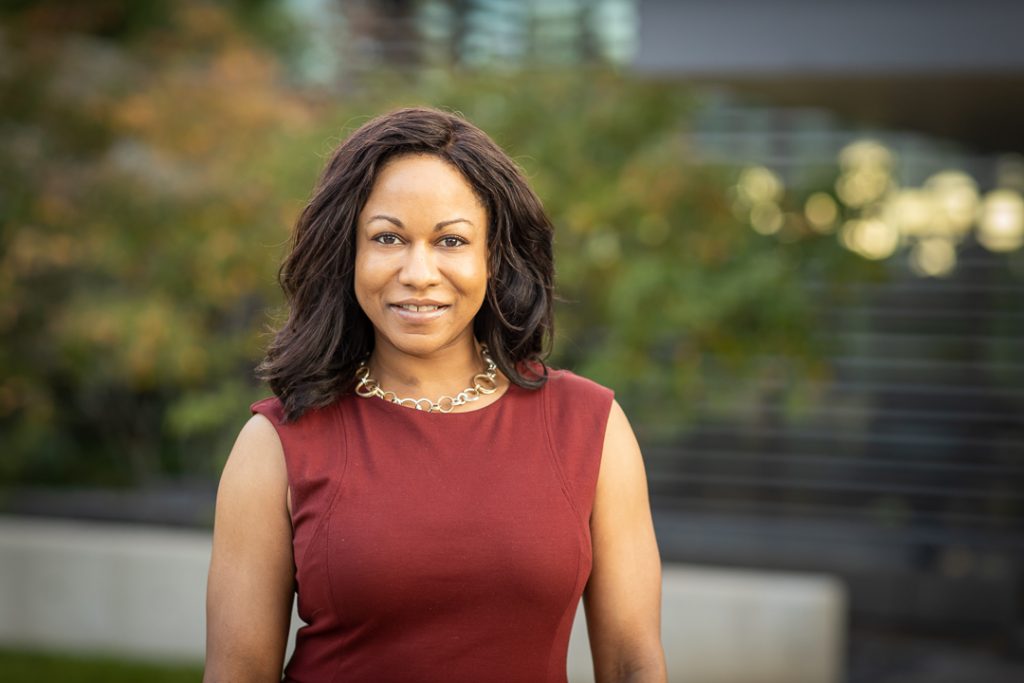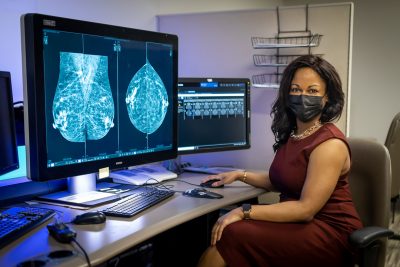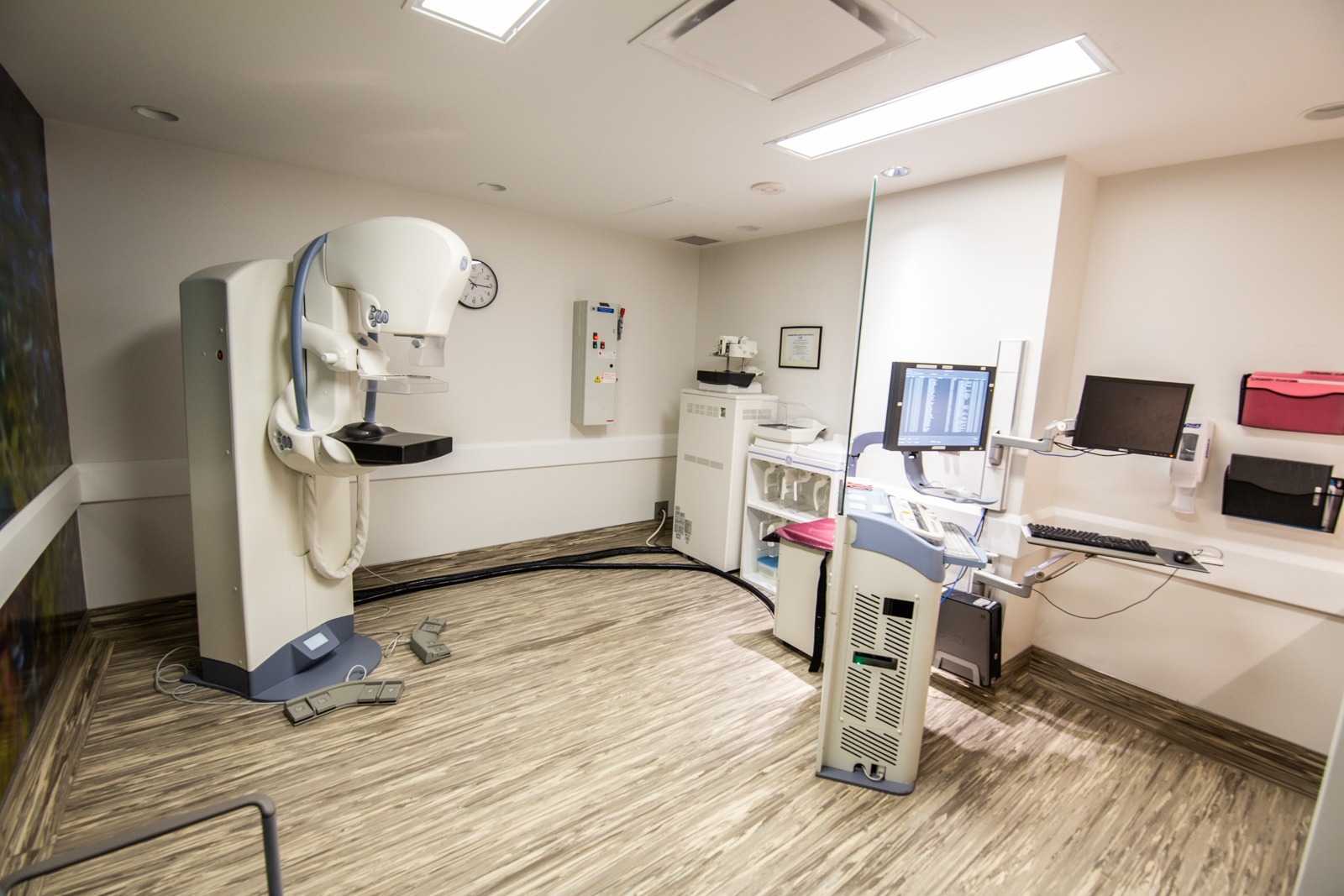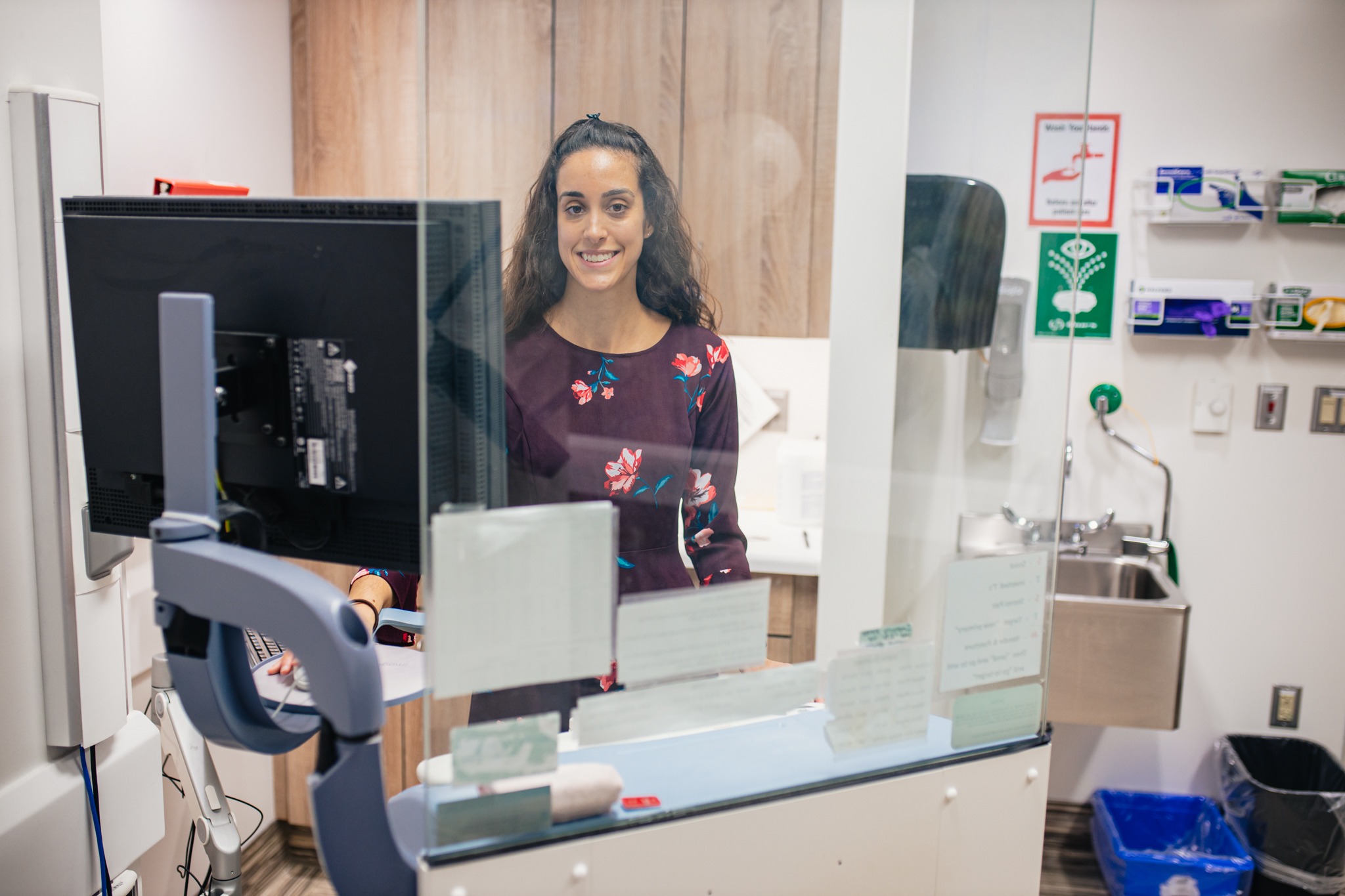
Introducing a Breast Radiologist
Dr. Meredith Lynch plays a key role in catching breast cancers early, when they’re smaller and easier to treat.
“I became interested in breast health when I was a medical student,” says Lynch, a radiologist at Hamilton Health Sciences (HHS) Juravinski Hospital and Cancer Centre (JHCC), where her work includes reading mammograms, x-rays, ultrasounds, CT and MRI scans.
“I ended up doing a large part of my elective in the breast imaging department as a medical student, which convinced me that I wanted to become a breast radiologist,” says Lynch, who completed a residency program in diagnostic radiology followed by a fellowship in breast and oncology imaging.

Dr. Meredith Lynch is a radiologist at Hamilton Health Sciences, where her work includes reading mammograms.
Lynch is also the regional breast imaging lead for the Ontario Breast Screening Program (OBSP). Her work as a lead helps ensure efficient, high-quality breast screening across the Hamilton, Niagara, Haldimand, Brant and Burlington region.
Book your mammogram today
The OBSP offers free mammograms to people ages 50 to 74 as part of their routine health care. It’s recommended that most women in this age group get a mammogram every two years since early detection can catch breast cancer when it’s small and hasn’t spread.
“We want people to know that OBSP sites are safe to visit.”
OBSP sites are located across the province. Anyone in the 50-to-74 year age group who’s due or overdue for a mammogram is encouraged to book their own appointment by phone at an OBSP site that’s most convenient for them. A referral is not necessary for this age group, although appointments can also be booked through a person’s primary care provider.
This year, due to delays caused by the pandemic, women aged 75 can also book their own appointment. Outside of the provincial breast screening program, women over 75 and under 50 can book through their primary care provider if screening is deemed necessary due to personal circumstances such as a family history.
Playing catch-up
There has been a reduction in cancer screening during the pandemic. Mammograms were halted from March to June, 2020 due to COVID-19. But even though OBSP sites re-opened over a year ago, people were initially slow to return.
“It’s believed that this drop in screening has led to an increase in undiagnosed, untreated cancers in the region which is why it’s so important for people who are due or overdue to book their mammogram,” says Lynch. “We want people to know that OBSP sites are safe to visit, and it’s important to their health to stay up-to-date with screening.”
Measures in place at OBSP sites to ensure a safe visit include hand washing, wearing masks, physical distancing, asking questions about COVID-19 symptoms before entry, and increased cleaning of surfaces between patients. In response to the increased interest in screening over the summer, some OBSP sites have introduced evening and Saturday appointments to help reduce the backlog of missed screening appointments.
The province also offers free pap tests through the Ontario Cervical Screening Program and an at-home test through its ColonCancerCheck program to screen for signs of colon cancer. More information on all three of the province’s screening programs can be found at hnhbscreenforlife.ca



